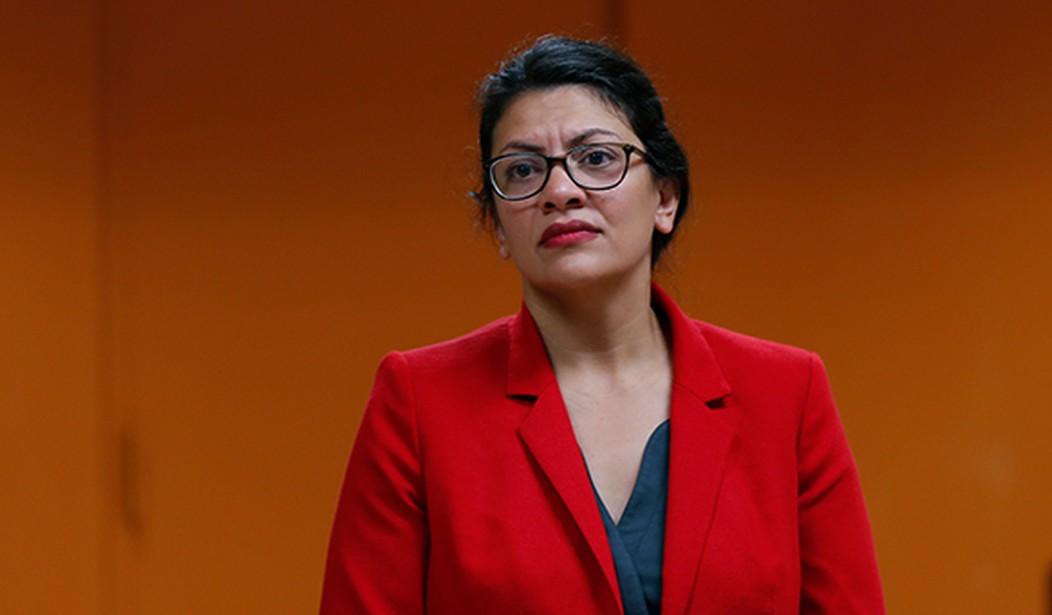Squad member Rashida Tlaib recently delivered a set of stirring remarks (for progressives, anyway) on the House floor on the subject of federal student loan debt forgiveness. Let’s just say that it didn’t go well. While this is a popular issue among Democrats in Congress, it’s frequently difficult to make the case for the proposal. There are probably many stories of people around the country who are struggling to pay off their student loans or simply ignoring them entirely, but rather than selecting a family that’s fallen on hard economic times during the pandemic, Tlaib opted to use herself as an example. The response to her complaints came quickly and it wasn’t flattering. As KOMO News was quick to point out, Tlaib makes an enviable amount of money as a member of Congress and she didn’t miss a single paycheck throughout the entire period of shutdowns. They described her performance as having “mistakenly made the case against federal student loan forgiveness.”
Critics are slamming comments made by Rep. Rashida Tlaib, D-Mich., arguing her complaints about her student loan debt proves federal bailouts would benefit the rich.
“I worked full time, Monday through Friday, and took weekend classes to get my law degree. And still, close to $200,000 in debt. And I still owe over $70,000 and most of it was interest,” Tlaib said during oral arguments on the House floor. “And guess what? I didn’t go to the for-profit entities, I went to legal aid, I worked at the nonprofit organization fighting for the right to breathe clean air, to fight for the worker that was getting their wage taken and stolen from their employer. I went and worked on immigrant rights and so much more,” she continued.
Tlaib makes $174,000 a year as a member of Congress.
All of this whining about her outstanding debt falls apart quickly under the least bit of scrutiny. Tlaib’s salary is squarely in the middle of the top 8% of American households in terms of annual income. Yes, that’s correct. She’s part of the dreaded “top ten percent” that Democrats love to squawk about when arguing in favor of taxing the rich. If anyone should be able to keep up with their loan payments, she’s certainly a prime candidate.
Further, Tlaib sought to glorify herself for having gone to work in lower-paying jobs for non-profit organizations after graduating. But when a person who is that far in debt chooses such a career path, that’s their own individual choice. She had a law degree from a well-regarded university and law school. She should have easily been able to find better-paying work in the private sector so she could take care of her obligations and then move on to more altruistic fields once she was financially stable.
That brings us back to the obvious fact that she’s no longer working for non-profits. She’s in Congress. She not only draws an admirable salary, but the taxpayers also generously reimburse her for all manner of expenses associated with her position and her staff. Those are perks that few in the private sector enjoy. How is it that she hasn’t already managed to pay down those debts with those sorts of resources coming her way?
Matt Walsh took to Twitter and offered up an answer as to whether or not the taxpayers should be footing the bill for her student loans.
She's a perfect example of why we shouldn't forgive student loans. She makes 175,000 a year and wants the tax payer to assume her debts? No, pay your bills you deadbeat. Student loan forgiveness is upper class welfare. https://t.co/mdOgX5ylkN
— Matt Walsh (@MattWalshBlog) December 5, 2021
This is yet another subject that doesn’t poll well with the voters but progressives still cling to it as if it does. There are plenty of people out there who took on large student loans and went on to work and pay them off. They generally don’t feel like seeing the people coming after them getting a free ride. There are also a huge number of people who never even got the chance to go to college. I’d be willing to bet that most of them aren’t shedding any tears over Tlaib’s plight.
As a final note, I would also point out that nobody forced Rashida Tlaib to take all of those loans. If she couldn’t come up with the money to pay for the schools she applied to, she could have attended a community college for two years and then went on to a state college where far more financial aid is available and tuitions are drastically lower. That’s a course that many people choose and they still wind up with one or more degrees and the chance to land a sweet job after graduation. Everyone has to make a lot of tough decisions when it comes to their education and their career. And adults are supposed to be held accountable for the results of those choices.








Join the conversation as a VIP Member